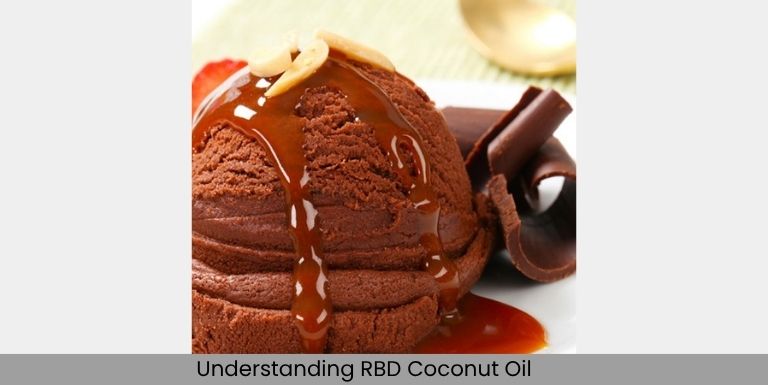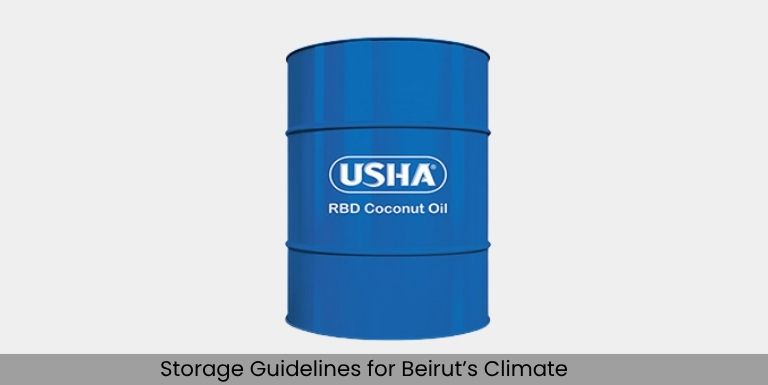Objective
To explain how RBD Palm Oil, RBD Coconut Oil, and Vegetable Shortening are shaping Beirut’s bakery, confectionery, HORECA, and packaged-food segments; to guide buyers on quality parameters, formulations, sourcing, and compliance in Lebanon; and to outline practical steps for cost control, product performance, and healthier positioning.
Beirut’s Market: Why These Vegetable Oils and Fats Matter Now
Beirut’s food ecosystem—artisanal bakeries, HORECA (hotels, restaurants, cafés), industrial bakeries, and confectioners—leans on reliable, versatile fats that balance functionality, flavor neutrality, shelf stability, and price. RBD Palm Oil, RBD Coconut Oil, and Vegetable Shortening tick these boxes. They deliver consistent lamination for croissants and puff pastries, reliable frying performance for quick-service formats, and stable textures for creams, icings, and compound chocolates—despite temperature swings, supply chain noise, and evolving consumer expectations in Lebanon.
Post-2020, operators in Beirut have prioritized:
- Cost predictability: minimizing reformulations and waste.
- Multi-application utility: one SKU serving frying, baking, and filling when feasible.
- Clean label and certifications: trans-fat-free claims, RSPO options for palm, and Halal/Kosher compliance.
- Shelf-life and food safety: oxidative stability, packaging barriers, and dependable COAs.
Product Basics & Where Each Fits
What is RBD Palm Oil?
Refined, Bleached, and Deodorized palm oil is neutral in taste/aroma, with a melting profile suitable for frying and bakery shortening bases. It offers excellent oxidative stability, competitive pricing, and broad availability. In Beirut, it’s favored for deep-frying, margarines, and palm-based shortenings used in laminated doughs and cookies.
Typical role:
- Frying (standalone or blended)
- Bakery fats (as shortening base)
- Confiserie applications where neutral flavor is key

What is RBD Coconut Oil?
RBD coconut oil is refined to remove coconut aroma while retaining a sharp, clean melt. It’s prized for melting behavior, crisp snap in coatings, and mouthfeel in fillings. It can elevate premium bakery and confectionery SKUs where cleaner labels and texture precision matter.
Typical role:
- Compound coatings and icings
- Premium laminated and shortcrust items
- Vegan or dairy-reduction concepts seeking a buttery melt
What is Vegetable Shortening?
Vegetable shortening is a structured fat system (often palm-based or blended) designed to deliver plasticity, aeration, and stability. In Beirut, shortenings are tuned for lamination, cake aeration, cookies, and filling stability. Compared with butter or margarine, shortenings can reduce cost volatility and improve handling in warm environments.
Typical role:
- Puff pastry, croissants, Danish laminations
- Cookies and biscuits (spread control, snap)
- Cream fillings and sandwich biscuits (structure + stability)
Technical Quality Parameters of Palm Oil, RBD Coconut Oil and Vegetable Shortening Buyers Should Check
Lebanese buyers—distributors, bakeries, and food manufacturers—can protect product performance by consistently verifying:
- FFA (Free Fatty Acids): Lower is better for stability and shelf-life.
- Peroxide Value (PV): Indicator of primary oxidation; aim low for freshness.
- Moisture & Impurities: Keep minimal to reduce foaming and off-notes.
- Slip/Melting Point: Match to target applications (e.g., lamination vs. coatings).
- Solid Fat Content (SFC) Curve: Predicts plasticity and mouthfeel across temperatures.
- Odor/Flavor Neutrality: Critical for subtle pastries and premium desserts.
- Antioxidant System: TBHQ or tocopherols to slow oxidation (declare per regulations).
- Certifications: Halal/Kosher; RSPO options for palm; non-GMO statements as needed.
- COA Consistency: Batch-to-batch stability to avoid mid-season reformulations.
Applications for Beirut Bakers and Chefs
Laminated Dough (Croissants, Puff, Danish)
- Target: Clean layers, open honeycomb, steady lift, buttery bite without greasiness.
- Fat Choice: Specialty palm-based shortening for plasticity at Beirut ambient temps; coconut-based shortening for sharper melt in premium SKUs.
Tips:
- Choose a melting point that resists smearing during lamination.
- Keep dough temperature controlled; use retarding to manage warm kitchens.
- For artisan lines, a palm/coconut blend can balance handling and melt.
Cookies & Biscuits
- Target: Spread control and crispness without oiling-out.
- Fat Choice: Vegetable shortening with tailored SFC.
Tips:
- Check SFC at 20–30°C to avoid excessive spread in summer.
- Use emulsifiers prudently for uniform crumb and surface finish.
Cakes & Aeration
- Target: Volume, tight crumb, moistness over shelf life.
- Fat Choice: Shortenings with emulsifiers for aeration and stability.
Tips:
- Creaming stage is decisive—temperature and mix time matter.
- Validate emulsifier systems for egg-fat synergy.
Fillings, Icings, and Compound Coatings
- Target: Stable structure, clean slice, non-waxy melt.
- Fat Choice: RBD coconut oil or coconut-forward blends for premium taste; palm fractions for economy.
Tips:
- Fine-tune melting profile to room-temperature service.
- Add antioxidants and consider barrier packaging to reduce fat bloom.
Frying (QSR, HORECA, Street-Food)
- Target: High smoke point, low polymerization, minimal flavor transfer.
- Fat Choice: RBD palm oil or palm-dominant blends for stability and cost.
Tips:
- Monitor TPC (Total Polar Compounds) and set discard points.
- Implement oil turnover best practices; filter particulates daily.
- Use closed drums and nitrogen flushing where available to slow oxidation.

Handling & Storage in Beirut’s Climate
- Cool, Dry Storage: Maintain below direct heat sources; avoid sunlight.
- Closed Containers: Reseal quickly to limit oxygen ingress.
- FIFO & Dating: Rotate stock to maintain freshness; track open dates.
- Warm-Weather Logistics: For high-melting shortenings, warm rooms can still soften structure—plan cold rooms for lamination blocks.
- Bloom Prevention: For coatings, control cooling/tempering and humidity.
Health, Labelling, and Consumer Positioning of RBD Palm Oil, RBD Coconut Oil and Vegetable Shortening
Consumers in Beirut increasingly ask for trans-fat-free, cleaner labels, and allergen clarity. Practical steps:
- Trans-fat-free formulating: Use modern palm fractions or coconut systems—avoid partial hydrogenation.
- Saturated Fat Context: Communicate portion guidance, overall recipe balance (e.g., fiber, whole grains), and bake-not-fry options for specific SKUs.
- Label Accuracy: Declare antioxidants (TBHQ/tocopherols), emulsifiers, and allergen cross-contact statements per Lebanese regulations.
- Certifications: Elevate trust with Halal/Kosher marks and, when applicable, RSPO for palm.
- Vegan Positioning: Coconut-based shortenings can enable dairy-reduction while maintaining indulgence.
Key Supplier Considerations for RBD Oils and Shortenings in Beirut
Supplier Reliability and Timely Delivery:
In a competitive market like Beirut, reliability is key. Suppliers must be able to deliver RBD Palm Oil, RBD Coconut Oil, and Vegetable Shortening on time, every time. This consistency ensures that manufacturers and food businesses in Beirut can maintain steady production schedules and avoid stockouts.
Custom Solutions for Local Applications:
Suppliers should be equipped to provide tailored formulations of RBD oils and shortenings to meet the specific needs of Beirut’s food industry. For example, offering custom melting points and plasticity levels that suit the hot climate or specific baking and frying needs (e.g., for flaky pastries or crispy fried foods).
Compliance with Lebanese Regulations:
A critical aspect for suppliers is ensuring that their products comply with Lebanon’s food safety regulations, including proper labeling, allergen declarations, and Halal/Kosher certifications. Suppliers that are proactive about these details build trust and credibility with their clients in Beirut.
Transparency in Sourcing:
Lebanese businesses increasingly prioritize sustainability. Suppliers should be able to provide documentation for their RSPO-certified palm oil coconut oil sources, showcasing their commitment to environmental responsibility. Traceability and ethical sourcing will resonate with Beirut’s health-conscious and eco-aware market.
Understanding Local Taste Preferences:
Suppliers who are aware of Beirut’s local palate can adjust their products accordingly. For instance, coconut oil may need to be refined to a specific level to meet the taste profile expected in traditional sweets. Knowledge of local flavor preferences and application needs will make suppliers more attractive to Beirut-based manufacturers and food processors.
A leading supplier (Usha Edible Oil) in the edible oil sector, with years of expertise, can provide these crucial factors, ensuring businesses in Beirut receive high-quality oils and shortenings tailored to the local market needs. Their commitment to timely delivery, regulatory compliance, and sustainability makes them the trusted choice for food manufacturers and processors.
Supplier Considerations for Pricing and Cost Efficiency of Edible Oils and Fats
Competitive Pricing and Flexible Terms:
As Beirut’s food industry is highly competitive, suppliers need to offer cost-effective pricing without compromising on product quality. This means providing options that allow businesses in Beirut to balance cost-in-use and premium ingredients—such as offering bulk purchasing discounts or customized pricing structures based on order volume.
Managing Freight and Customs:
Given Beirut’s central location in the Mediterranean, suppliers must account for freight logistics and customs clearance in the pricing structure. Offering transparent delivery schedules and a clear understanding of any import duties or local tax regulations will help suppliers gain the trust of their Beirut-based customers.
Local Stock and Distribution Partnerships:
To address Lebanon’s dynamic market, suppliers who maintain a local stock or distribution network in Beirut can offer faster response times and reduce lead times. This can be a major advantage for businesses that require flexibility and rapid replenishment during high-demand seasons.
Clear Terms for Returns and Complaints:
Suppliers that have clear return policies and responsive customer service can quickly resolve issues related to product quality, shipping errors, or technical support. This is vital in an environment like Beirut, where businesses value strong partnerships for ongoing success.
A well-established supplier named Usha Edible Oil with a local presence in UAE can offer the best pricing options, faster lead times, and dependable logistics, ensuring businesses have the flexibility and reliability they need to succeed in the local market. Their transparent approach to freight, customs, and returns builds long-term trust and customer satisfaction.
Conclusion
RBD Palm Oil, RBD Coconut Oil, and Vegetable Shortening have become strategic ingredients in Beirut’s evolving food scene. Palm offers stability and value for frying and structured systems; coconut delivers premium melt and mouthfeel for coatings and fillings; and vegetable shortenings provide precise plasticity for lamination, cookies, and cakes. With the right quality controls, SFC-aware selection, and storage discipline, Beirut operators can raise product consistency, protect margins, and meet consumer expectations for cleaner labels and reliable indulgence—even in a warm, dynamic market.
For those seeking the finest quality of these essential ingredients in Beirut, Usha Edible Oil stands out as the best manufacturer, exporter, and wholesale supplier. Their products offer unmatched consistency, reliability, and support, making them the ideal choice for businesses looking to enhance their product offerings and maintain high standards. Choose Usha Edible Oil for RBD Palm Oil, RBD Coconut Oil, and Vegetable Shortening to ensure your recipes thrive and your business stays ahead in the competitive food industry.
FAQs (Beirut-Focused)
Which fat is best for puff pastry in Beirut’s summer?
A palm-based vegetable shortening with a slightly higher melting point and supportive SFC curve. It resists smearing during lamination and maintains lift.
Can RBD coconut oil replace butter in oriental sweets?
Yes, particularly where a clean, rapid melt is preferred and butter notes are non-essential. Start with partial replacement and validate texture and flavor.
How do I read a COA for these products?
Check FFA (freshness), PV (oxidation), SFC (plasticity across temps), moisture/impurities, and additives (antioxidants/emulsifiers). Compare against your SOP targets.
What’s the ideal frying practice for QSR in Beirut?
Use RBD palm oil or a palm-dominant blend, filter daily, monitor TPC, and maintain consistent oil turnover to stabilize flavor and color.
Are RSPO and Halal/Kosher necessary?
They’re not legally mandatory in every case, but buyers in Beirut often expect them for trust, sustainability, and market access—especially for retail-facing products.
Author Bio

Sales Manager
Muhammad Usman, Sales Manager at Usha Edible Oil, combines years of industry experience with a strong focus on customer relationships. His expertise ensures that Usha Edible Oil delivers high-quality products, including RBD Palm Oil (CP6, CP8 and CP10), RBD Coconut Oil, Specialty Fats, Vegetable Shortening, Vegetable Ghee, and Margarine, to meet the diverse needs of global markets.
With a commitment to excellence, Muhammad continues to lead Usha Edible Oil in providing innovative and reliable vegetable oils, specialty fats, vegetable shortening, vegetable ghee, margarine export to various countries worldwide including Saudi Arabia, United Arab Emirates (UAE), Egypt, Syria, Qatar, Kuwait, Oman, Bahrain, Yemen, Iraq, Iran, Jordan, Lebanon, Palestine, Turkey, Sudan, solidifying its position as a trusted manufacturer, exporter, and wholesale supplier in the food industry.


